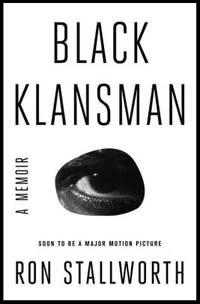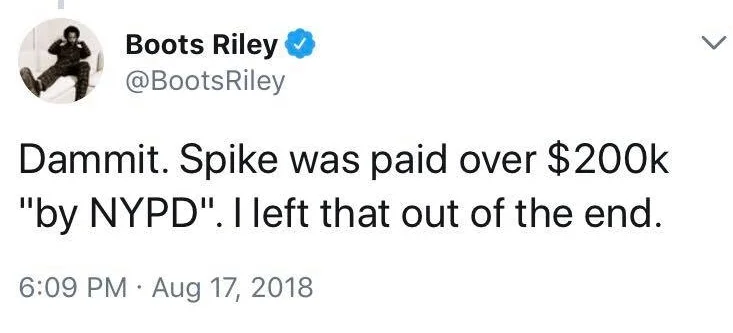By ESENDOM
September 6, 2018
Did he or didn’t he?
Spike Lee, the popular filmmaker known for classic cinematic works such as Do The Right Thing, Malcolm X and Jungle Fever, came under criticism a few days after the release of BlacKkKlansman, his latest film.
On August 17, musician, filmmaker and activist Boots Riley took aim at Spike Lee’s film which, by the way, has received positive reviews in the mainstream media. In his Twitter account Boots Riley, whose film Sorry to Bother You is creating quite a stir in American cinema, wrote an honest and respectful two-page critique of the film. But first, Riley acknowledged Lee’s influence on him:
“Spike Lee has been a huge influence on me. He’s the reason I went to film school so many years ago. He’s the first person I sent a demo tape of my music to when he had 40 Acres and A Mule Musicworks, and he has inspired me as a cultural critic as well.”
Afterwards, Boots Riley, lead singer of The Coup, threw his darts at the revered and influential African-American filmmaker:
First, BlacKkKlansman is not a true story. A story not being “true” is not necessarily a problem for me—I have no interest in telling them myself at this time—but this is being pushed as a true story and it is precisely its untrue elements that make a cop a hero against racism. When I voiced some criticism before, a few people said “but it’s a true story!” It’s not.
It’s a made up story in which the false parts of it to try to make a cop the protagonist in the fight against racist oppression. It’s being put out while Black Lives Matter is a discussion—and that is not coincidental. There is a viewpoint behind it.
Riley went into detail and explained point-by-point why BlacKkKlansman, despite the good intentions to denounce white supremacy, turns out to be another problematic movie. In fact, Riley questioned the memoir that inspired the film since Ron Stallworth, who claimed to have infiltrated the Ku Klux Klan in the 1970s, “wrote a memoir to put himself in a different light, but let’s look at what else we know. There was no bombing that Stallworth or the police thwarted. This was not in Stallworth’s memoir. That was made up for the movie to make the police seem like heroes,” according to Riley.
In his Twitter critique, Riley could not hide his disappointment with Spike Lee:
Look, we deal with racism not just from physical terror or attitudes of racist people, but in pay scale, housing, health care, and other material quality of life issues. But to the extent that people of color deal with actual physical attacks and terrorizing due to racism and racist doctrines, we deal with it mostly from the police on a day to day basis. And not just from White cops. From Black cops too. So for Spike to come out with a movie where story points are fabricated in order to make Black cop and his counterparts look like allies in the fight against racism is really disappointing, to put it very mildly.
On August 24, Spike Lee lashed back at Riley’s criticism in an interview with the U.K’s The Times newspaper:
"Look at my films: they’ve been very critical of the police, but on the other hand I’m never going to say all police are corrupt, that all police hate people of color. I’m not going to say that. I mean, we need police."
Riley’s sharp critique of Spike Lee’s latest film is an indication that a once-irreverent filmmaker lost his groove and a new generation of African-American filmmakers like Riley, are picking up where he left off.
___


